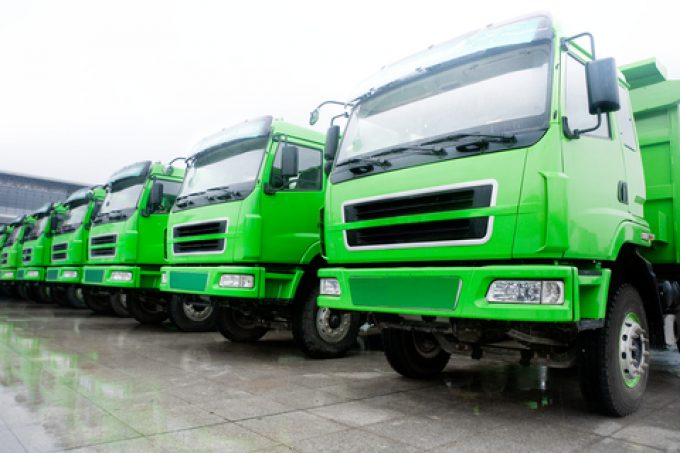China 'buying market share' as it stockpiles EVs at western ports
Urgent attention from European and North American governments is required to address China’s “egregious” practice ...

The stricter emission standards for HGVs adopted yesterday by the European Commission (EC) have been dubbed as “overly ambitious” and “idealistic” by the International Road Transport Union (IRU), who warned it could limit SMEs’ ability to compete with larger firms.
Under the new legislation, EC emissions standards will be expanded to make almost all new HGVs with certified CO2 emissions subject to reduction targets, and will now include smaller trucks, urban buses, coaches and trailers.
Further, in line with the EC’s goal to reduce total carbon emissions by 55% by 2030, compared with 1990 levels, the HGV sector must post a 45% emissions reduction from 2030 – from 30% previously.
After which, the sector must achieve a 65% emissions reduction by 2035, and a 90% reduction by 2040.
The EC said: “The strengthened CO2 emissions reduction requirements should incentivise an increasing share of zero-emission heavy-duty vehicles being deployed… as well as ensuring that innovation in the automotive value chain and the associated high-quality jobs can be maintained.”
But IRU EU advocacy director Raluca Marian warned: “From the perspective of the infrastructure necessary for upscaling the deployment of zero-emission heavy-duty vehicles, we are somewhere at ‘moment zero’ – it just started.
“From the perspective of awareness and willingness of our sector’s customers to share the high cost of the transition, we slowly passed moment zero, but are still far off. In other words, until now legislators have worked based on ideals, now it is time to put together the numbers and see what the EU economy can actually deliver.”
Indeed, the haulage sector has been struggling with rising operating costs and reduced customer demand, resulting in tightening profit margins that make investment into new vehicles unfeasible.
And an IRU spokesperson told The Loadstar smaller haulage companies, with less capital to invest in electric or lower-emission vehicles, would be “heavily impacted” by the new rules.
“The high upfront costs of transitioning to cleaner technologies can be prohibitive for these companies, potentially limiting their ability to compete with larger firms that have more resources to invest in new vehicles.
“Without the ability to update their fleets, these companies might face reduced operational capabilities, especially as cities and countries implement stricter emission regulations.”
The spokesperson warned that this could lead to a decrease in market competitiveness and even force some SME hauliers out of business.
Listen to this clip from the latest episode of The Loadstar Podcast to hear how to manage container supply chains in a time of multiple risks:
The EC said a “transition pathway” was being developed to accompany the “transition of the automotive value chain”, but has yet to release details. It said this would “pay particular attention to small and medium-sized enterprises in the automotive supply chain”.
The commission also noted it was looking at appropriate actions and incentives to boost the affordability of zero-emission heavy-duty vehicles and “assist micro-enterprises in purchasing”.
Large companies have more purchasing power when it comes to zero-emission fleet options, which could drive consolidation in the industry. DB Schenker announced today it was “heavily embracing electric trucks”, and would be the first company in Sweden to start testing the R 450e electric truck from Scania on regular long-distance routes.
Heavy-duty vehicles are responsible for more than a quarter of greenhouse gas emissions from road transport in the EU, according to the EC.
Italy, Poland and Slovakia yesterday voted against the bill, proposed on 14 February 2023, while the Czech Republic abstained and all other member states voted in favour.
Comment on this article
Kirk Dugard
May 14, 2024 at 1:35 pmIs it the intention for the same restrictions to apply to trucks transiting the EU from non member states?
Alex Lennane
May 14, 2024 at 4:19 pmWe’ll find out for you!
Alex Lennane
May 16, 2024 at 12:25 pmFrom the EU: “This legislation applies to vehicles registered in the EU, so it would not have an impact on vehicles in transit from non-Member States.”
Norman Highnam
May 14, 2024 at 3:13 pmOne of the biggest emitter even bigger than the trucks are the transport refrigeration units running on diesel and leaking there HFC-HFO gases into the atmosphere. But all of these emission limitations can mean a non diesel truck running with a diesel powered fridge above the cab. We need some common sense in emission control across the board.